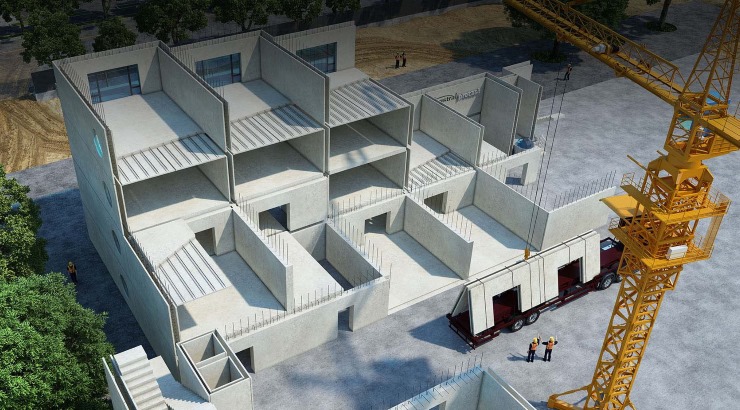Materials & Supplies
Chinese Firm Plans Sh1bn Prefab Factory in Athi River
The plant will produce prefab panels for commercial, industrial, and high-rise projects.

Blue Sky International is set to build a Sh1 billion prefabricated panels factory in Athi River, Machakos, as it seeks to ride on the rising demand for low-cost housing in Kenya.
The Chinese firm, which specialises in affordable building solutions, said its plant will manufacture prefabricated panels for commercial, industrial, and high-rise developments such as apartments and hotels.
Blue Sky says its technology provides strength, durability, faster and cheaper construction compared to traditional bricks and mortar — with no wastage of building materials.
“Our technology will enable investors to put up structures that will not be limited in height or number of floors,” said Bai White, the firm’s construction engineer.
“The technology allows for a maximum of two weeks to raise two floors subject to availability of materials locally,” White added.
Blue Sky, which has already built a warehouse for a construction company in Eldoret, says its technology provides “strength, durability, faster and cheaper construction – with no wastage – and unique designs in developments that have otherwise been tasteless oblong structures such as warehouses and factories”.
RELATED: Chinese Investor Opens Wall Panels Factory in Nairobi
White said that stylish and unique prefabricated villas in any size and design can also be constructed in less than two weeks – complete with walls, floor beams, roof, ceiling, and staircases, among other components.
Blue Sky joins its compatriot Boleyn Magic Wall Panel Ltd., which recently unveiled a precast concrete factory in Kitengela to produce a new type of panel – christened Boleyn Magic Wall – made of expanded polystyrene and precast materials.
The two companies are betting their billions on prefabricated building technology that is billed as a faster and cheaper mode of construction with the potential to slash building costs by up to 30 per cent.
However, in a market dominated by conventional bricks and mortar, it will take a lot of marketing and consumer education to effect a shift to prefabricated houses.














